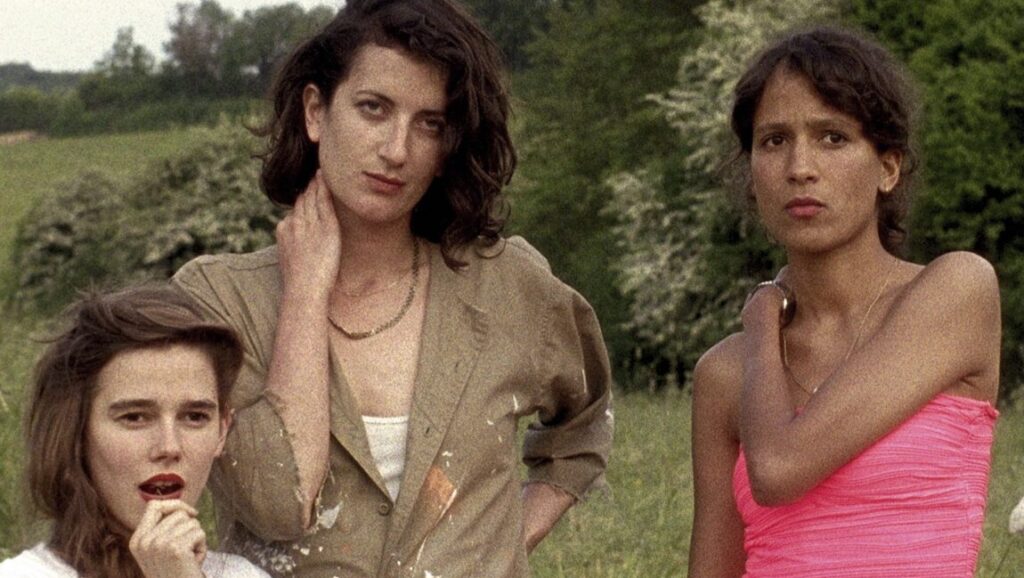Despite a slew of savvy would-be war-propaganda films in the 1940s (headed by David O. Selznick’s Since You Went Away) that made the plight of army wives their central focus, more recent efforts in this tradition, such as American Sniper, have tended more often to treat the emotional turmoil of the army spouse as only a fleeting consideration, lest too much be taken away from the real action of war’s front lines. In detailing a community of people at a retreat for soldiers’ respective others, however, director Benjamin Crotty’s first feature-length film, Fort Buchanan, once again illuminates the personal battles of various people left behind—forced to rely upon each other while their camouflage-clad consorts are away fighting in distant lands. But what makes Grotty’s intention even bolder is that he’s chosen to focus primarily on the relationship between house-husband Roger (Andy Gillet) and army major Frank (David Baiot). Offering a fresh exploration of a universal issue put in a gay context, this unconventional dynamic also raises other questions about power struggles within essentially-one-parent families (Roger and Frank have an eighteen year-old daughter), and about managing adolescence without the presence of a strong role model. Grotty emphasizes his characters’ tentative bonds; and his use of French language dialogue in an English-speaking setting further serves to accentuate the sense of displacement felt by the left-behind Roger and his daughter, as well as the soldiers marooned in the fort.
Fort Buchanan takes common troubled-soldier tropes concerning dehumanization and a lack of purpose and more broadly considers their effects on the whole spectrum of the familial unit.
During one of Fort Buchanan‘s frank early discussions, a character observes, “When you marry a soldier, you are never totally alone.” This is a sentiment that echoes throughout the film: characters suffer, as a collective, from the pressures of being part of a military family. Whether these pressures involve marital practicalities or the desire for sexual attention, the co-dependency of the spouses feels worryingly intense, but also authentic and vital—a propinquitous replacement for what has been lost. Crotty is likewise keen to emphasize a sexual energy at play here, essentially portraying the fort as a meat market of sorts, in which various characters engage in games of seduction out of apparent boredom. The casting of unknown French actors pays overwhelming dividends in this regard, as each member of the sturdy ensemble brings unique experiences of solitude—led by a tortured performance from Gillet, who expresses the toil of emotional distance with tremendous texture and nuance. The many different relationship dynamics represented in Fort Buchanan‘s modest sixty-five minute run-time do lead to some plot points feeling hurried or hackneyed—particularly with regard to the general use of PTSD in the climax. Crotty lazily recycles the grocery shopping scene at the end of Kathryn Bigelow’s The Hurt Locker—simply replacing cereal with shampoo—and for the same ends of demonstrating a soldier’s disillusioned re-entry into the rigmarole of everyday life. This is unnecessary in part because Fort Buchanan, by this point, has already taken common troubled-soldier tropes concerning dehumanization and a lack of purpose and more broadly considered their effects on the whole spectrum of the familial unit, but also because Crotty’s film generally takes its examination and critique even further: It juxtaposes the “selfless” act of fighting for one’s country with the selfish eventuality of putting a loved one at the mercy of that choice.

